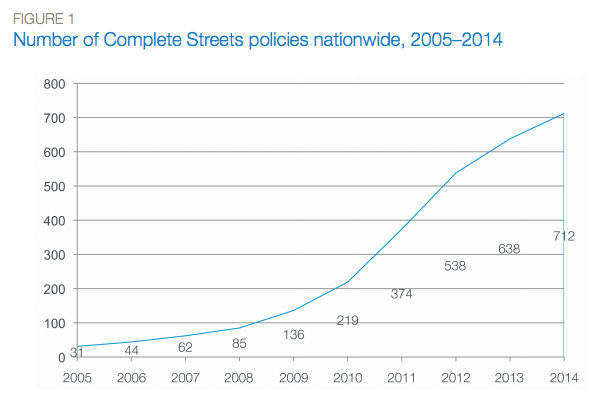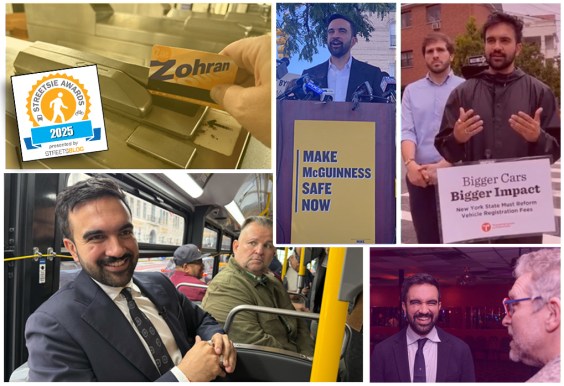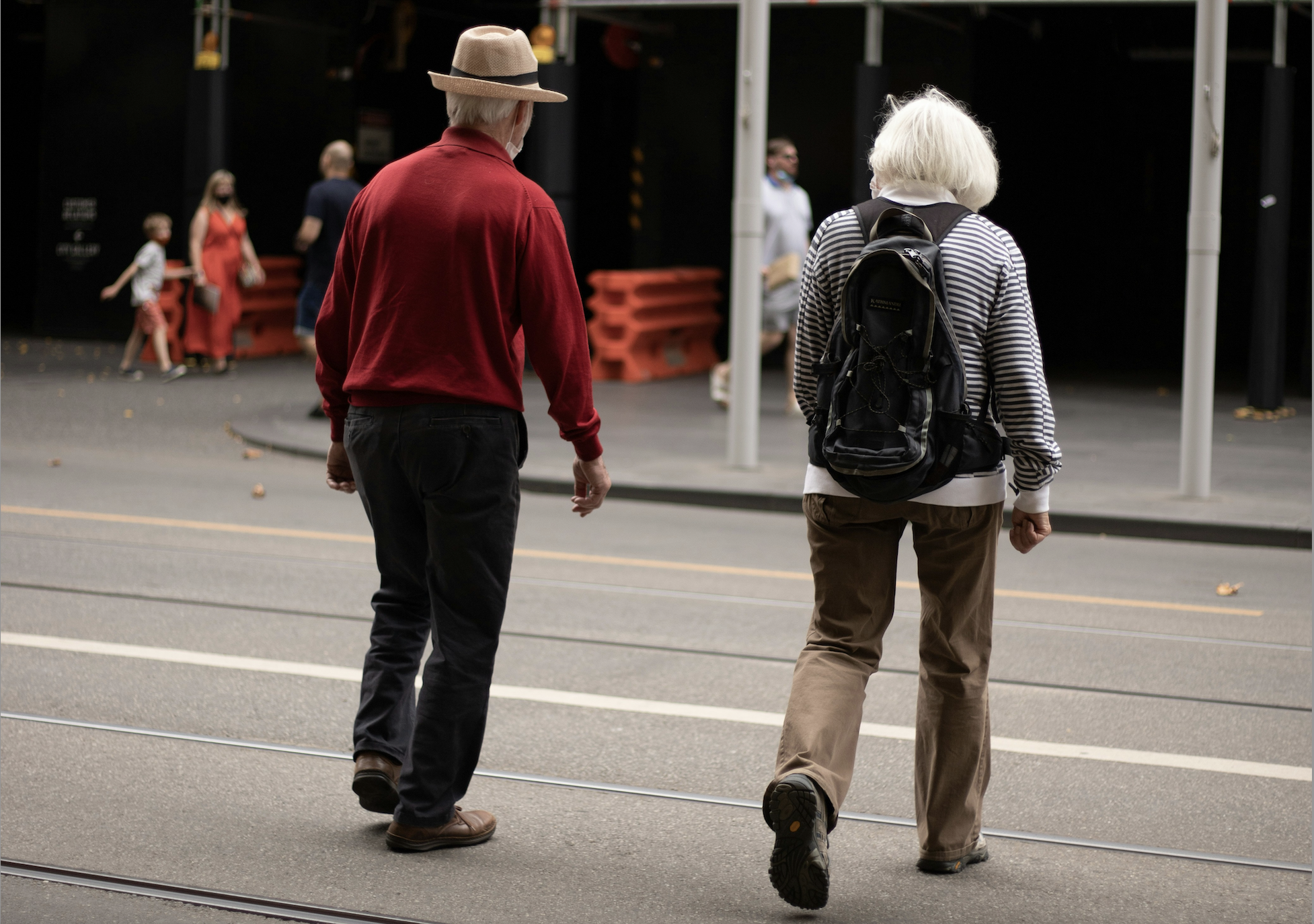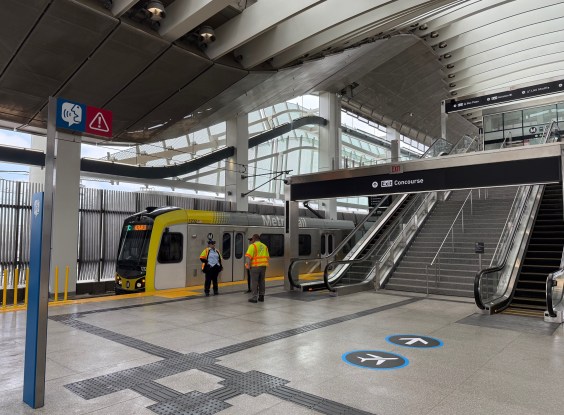Complete streets policies have proliferated rapidly in American cities and towns over the last few years. A total of 712 jurisdictions nationwide -- counties, cities, suburbs, even transit agencies -- now have complete streets resolutions or ordinances that codify an approach to street design that serves people who walk, bike, and ride transit. In the last year, an additional 70 American cities and towns joined the list, according to the National Complete Streets Coalition.
To help ensure that those policies have teeth, the National Complete Streets Coalition offers guidance to communities about how to craft them. Their 2014 "Best Complete Streets Policies" report [PDF] recognizes the new laws on the books that commit to safer streets for everyone, no matter how you get around.
This year's honorees are:
1. Ogdensburg, NY
2. Troy, NY
3. Lakemoor, IL (tie)
3. Dawson County, MT (tie)
3. Austin, TX (tie)
6. Acton, MA (tie)
6. Middleton, MA (tie)
6. Reading, MA (tie)
6. Salem, MA (tie)
10. Los Angeles County Metropolitan Transportation Authority (tie)
10. Stoughton, MA (tie)
The National Complete Streets Coalition uses 11 criteria to arrive at these rankings. The organization awards points to local governments that commit to specific performance measures in their complete streets law. For example, sixth-ranked Dawson County, Montana, requires a progress report on the implementation of bike lanes and pedestrian infrastructure after six months.
Another important element of a strong policy is defining exemptions to the rule. Cases where roads do not have to be designed to accommodate walking or biking must be spelled out very clearly to avoid creating unnecessary loopholes. The Coalition singled out Stoughton, Massachusetts as having a strong policy in this regard. Stoughton exempts limited access highways, where the costs of compliance are "excessively disproportionate to the benefits," and streets where "an absence of future need" can be demonstrated. The Coalition recommends that each exemption should require approval from a top administrator.






